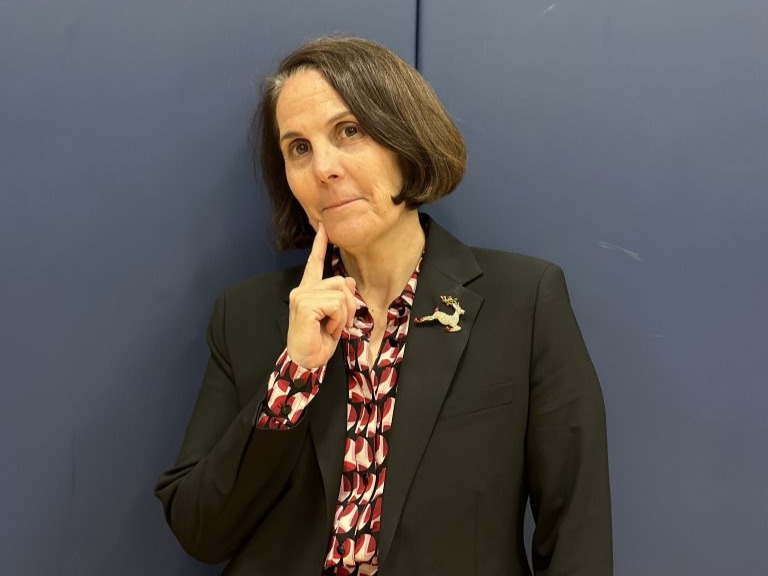The Alf Museum does a lot more than holding centuries of old bones—it invokes curiosity, conversation and connection. That Is the purpose behind the Peccary Lecture Series, a dynamic speaker program designed to introduce Webb students to the world of scientific research and the people who live it every day.
The Peccary Lecture Series was started to help students engage with active researchers and deepen their understanding of how science is practiced outside the classroom.
“The idea is to give students a direct line to scientists who are doing primary research,” said Dr. Mairin Balisi, Augustyn Family Curator of Paleontology and Science Faculty.
For students in the Honors Museum Research course, this series becomes a bridge between reading scientific papers and conducting their own original research.
“They’re learning how to analyze and present research, and now they get to hear it straight from the source,” said Dr. Balisi.
The speaker selection process is guided by both academic relevance and relatability. Last year, the series featured four speakers from institutions like UCLA, UC Riverside, and the Dinosaur Institute at the Natural History Museum of Los Angeles County.
“I try to invite early-career researchers because they’re often closer in age to students, making them easier to connect with,” Dr. Balisi said. “It also gives these researchers a chance to add a line to their CV, which can help them land permanent positions. It’s mutually beneficial.”
Located in the Innovation Lab, Dr. Balisi recently held a lecture about the truth behind the “de-extinction” of the dire wolves, while also making everyone wonder about the ethics of it and what “de-extinction” could mean for our future.
“It was cool to see if the de-extinction of the dire wolves was real or fake.” Shivi Uppal (‘26) said.
As more eager students entered the lab, tables soon began to be filled, leaving the rest of the students to sit on the floor. In the back of the Innovation Lab Conference Room, faculty members sat facing the white projector at the front of the room, interested in what Dr. Balisi had to say about dire wolves.
After her 40-minute presentation, several students asked deep questions about the ethics of de-extinction, making the lecture 30 minutes longer. From a simple lecture to a class-like discussion between the students and the teacher, the students felt they learned more than just the truth behind the new dire wolves.
Dr. Balisi also explained the process of de-extinction, her personal experience and contribution to the dire wolves’ study, and why it is impossible to bring back dire wolves.
“It really felt like she knew what she was talking about,” Jasmine Beseth (‘25) said. “The audience attentiveness and pure interest was amazing to see.”
While the lecture series began as a small component of the Honors Museum Research class, it is now growing into a more regular event. Typically, there are several speakers each year, with plans for panels and collaborations with institutions like the La Brea Tar Pits and the Natural History Museum of L.A. County.
It is not only educational and beneficial to the students, but also informative to the teachers and paleontologists.
“Personally, it is a professional development opportunity to learn about what is happening in some areas of paleontology that I am not working on,” said Dr. Andrew Farke, Director of the Raymond M. Alf Museum of Paleontology and Science Faculty.
The goal is to foster a culture of intellectual curiosity and scientific communication,” Dr. Balisi said. “I want students to see what it looks like to share science in a clear, engaging way without getting lost in the jargon.”
Beyond the classroom, the series offers real-world exposure to the processes, challenges, and passions behind modern scientific discovery.



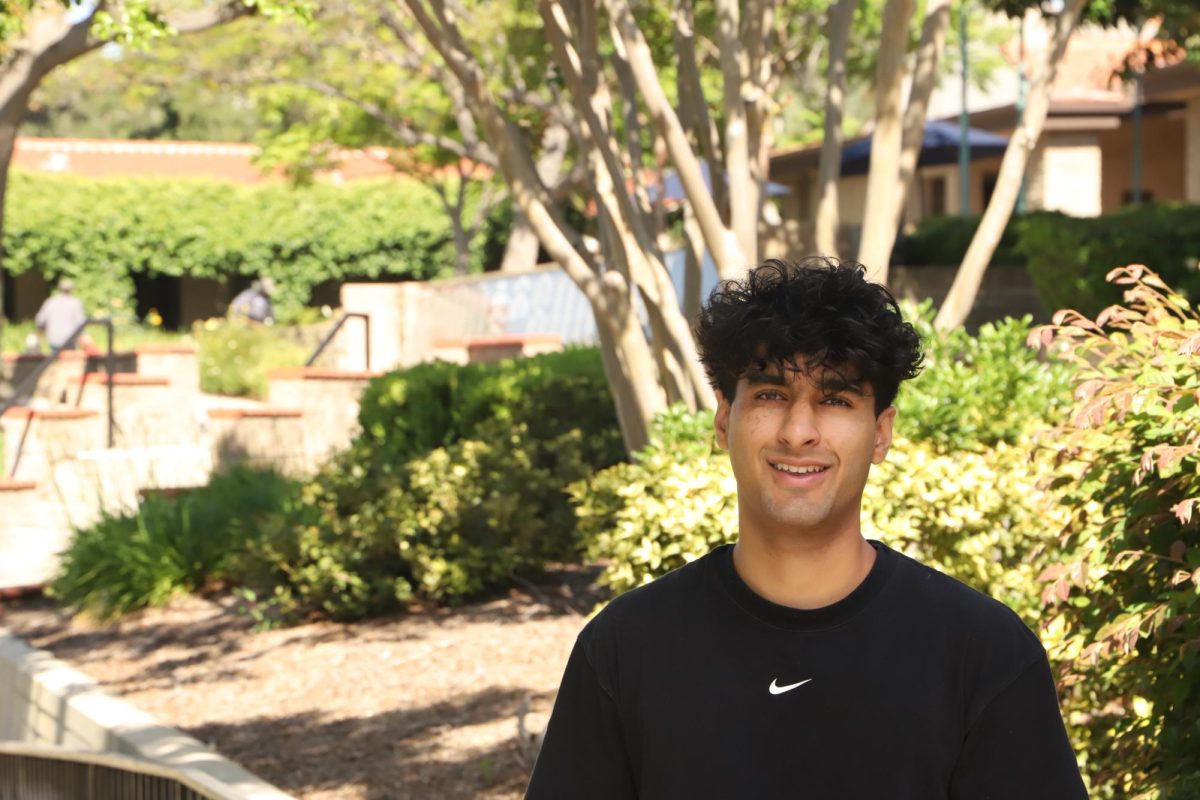
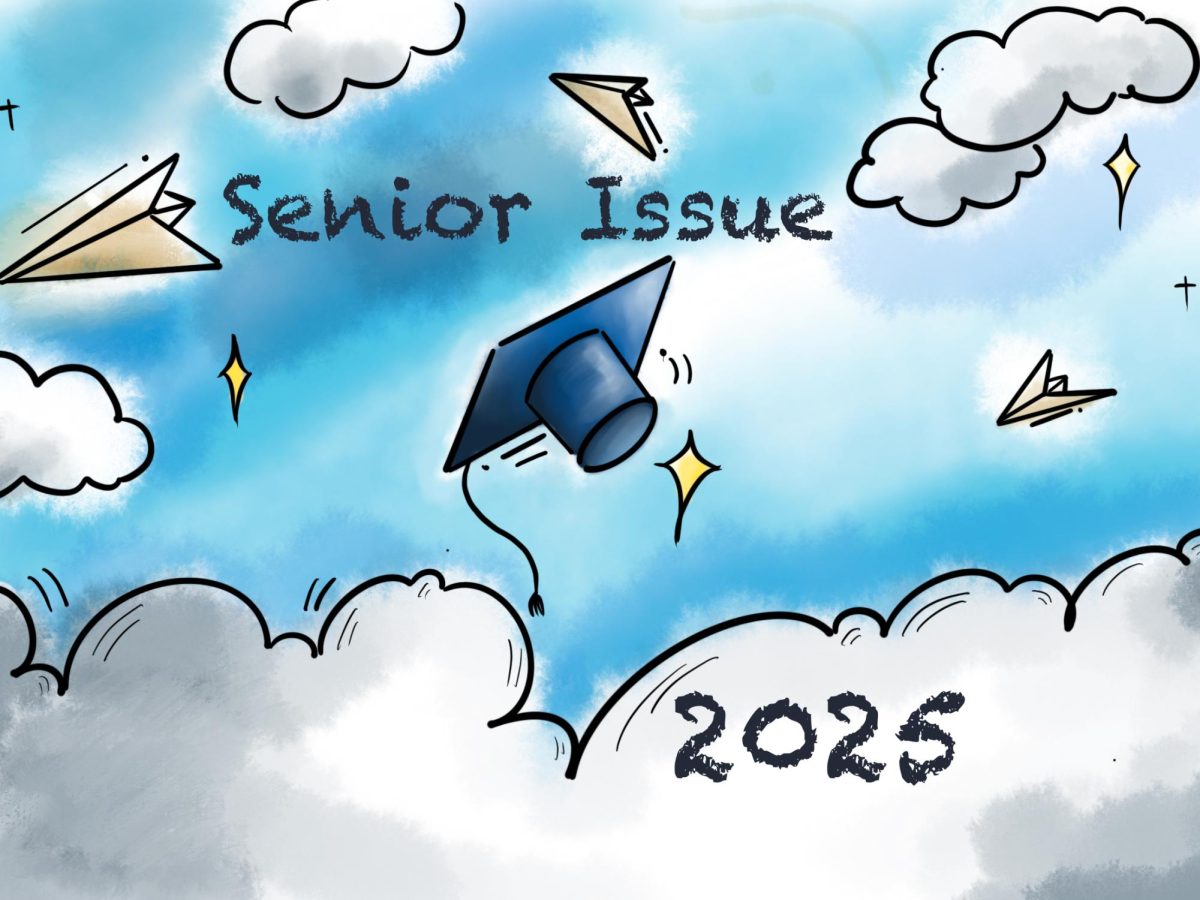
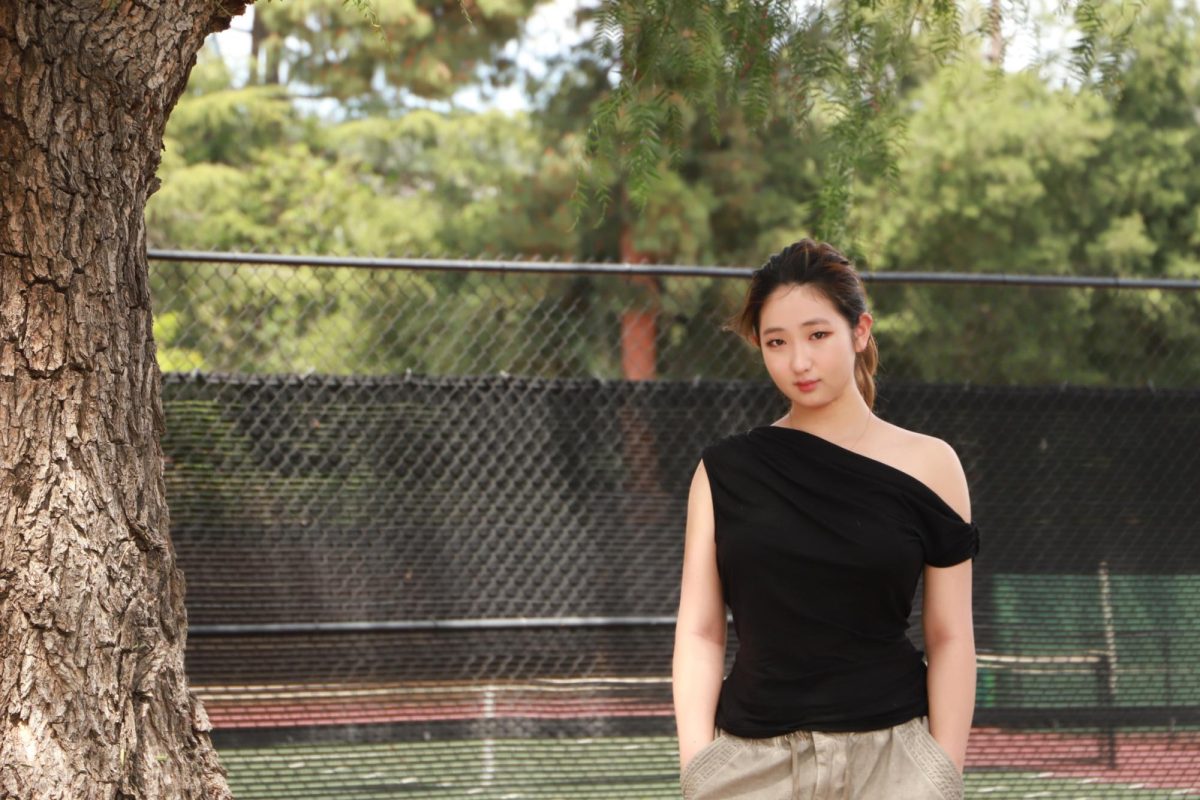
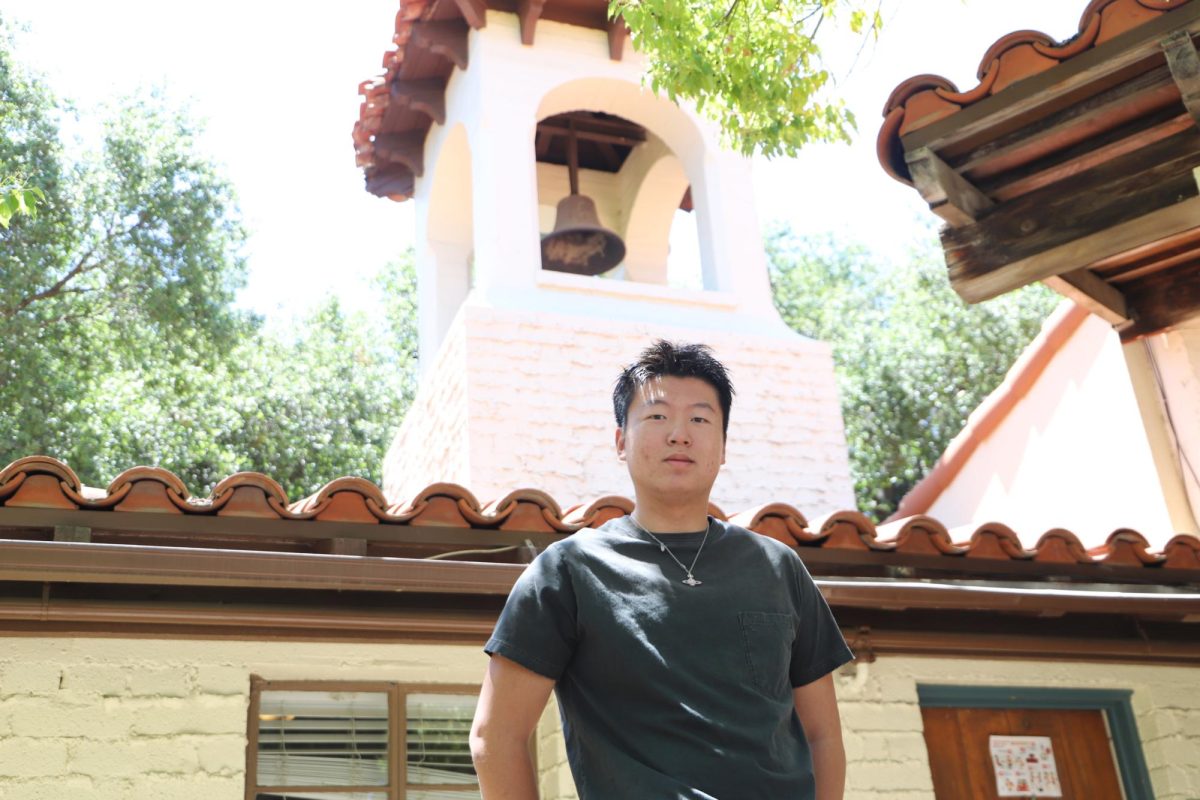
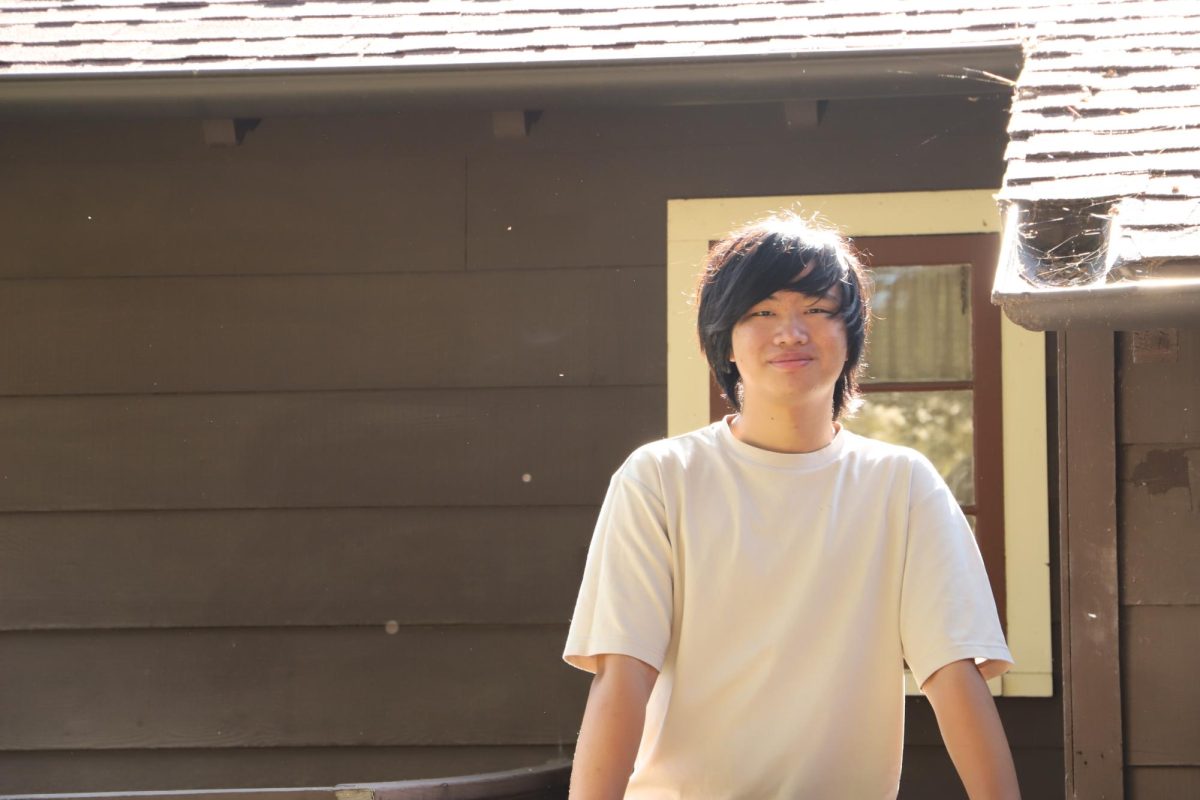

![All members of the Webb Robotics Winter season teams taking a group photo. Of note is Team 359, pictured in the middle row. “It was super exciting to get the win and have the chance to go to regionals [robotics competition]” Max Lan (‘25) said. From left to right: Max Lan (‘25), Jerry Hu (‘26), David Lui (‘25), Jake Hui (’25), Boyang Li (‘25), bottom Jonathan Li (’25), Tyler Liu (‘25)](https://webbcanyonchronicle.com/wp-content/uploads/2025/03/Screenshot-2025-03-10-at-2.41.38 PM.png)

